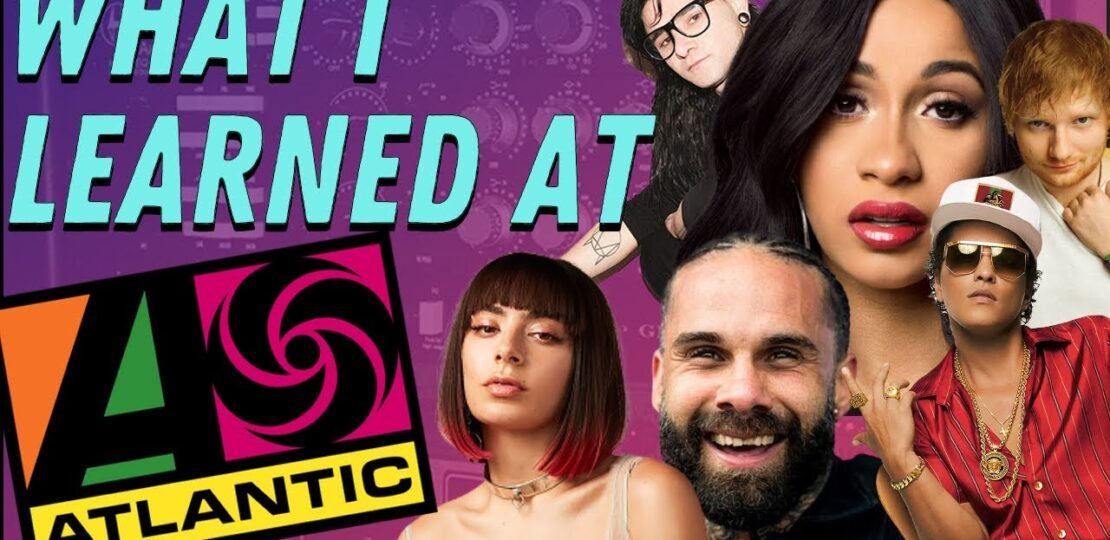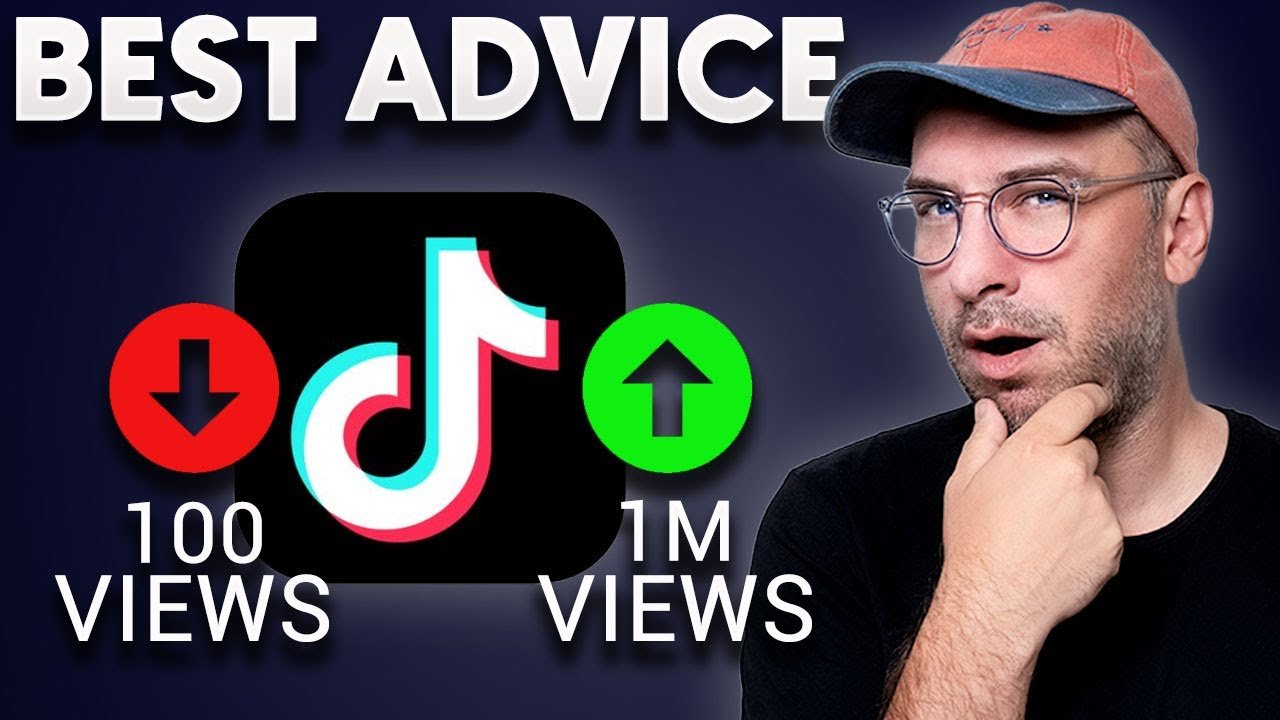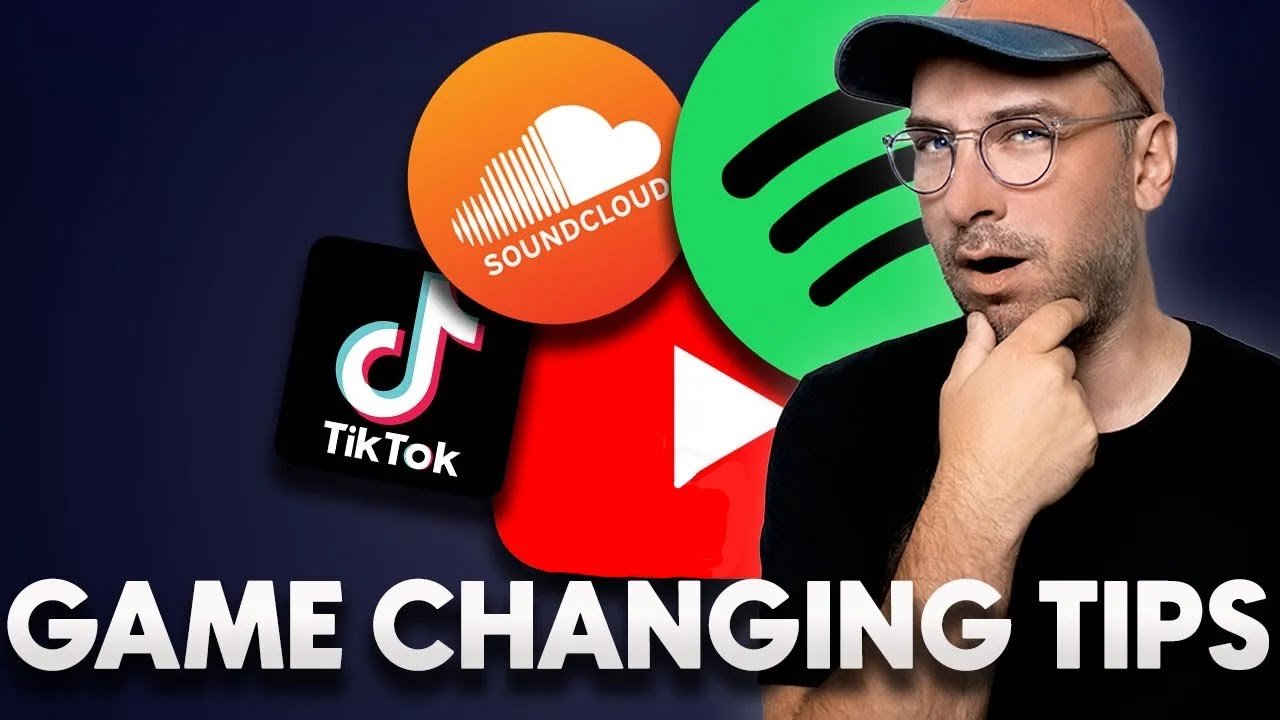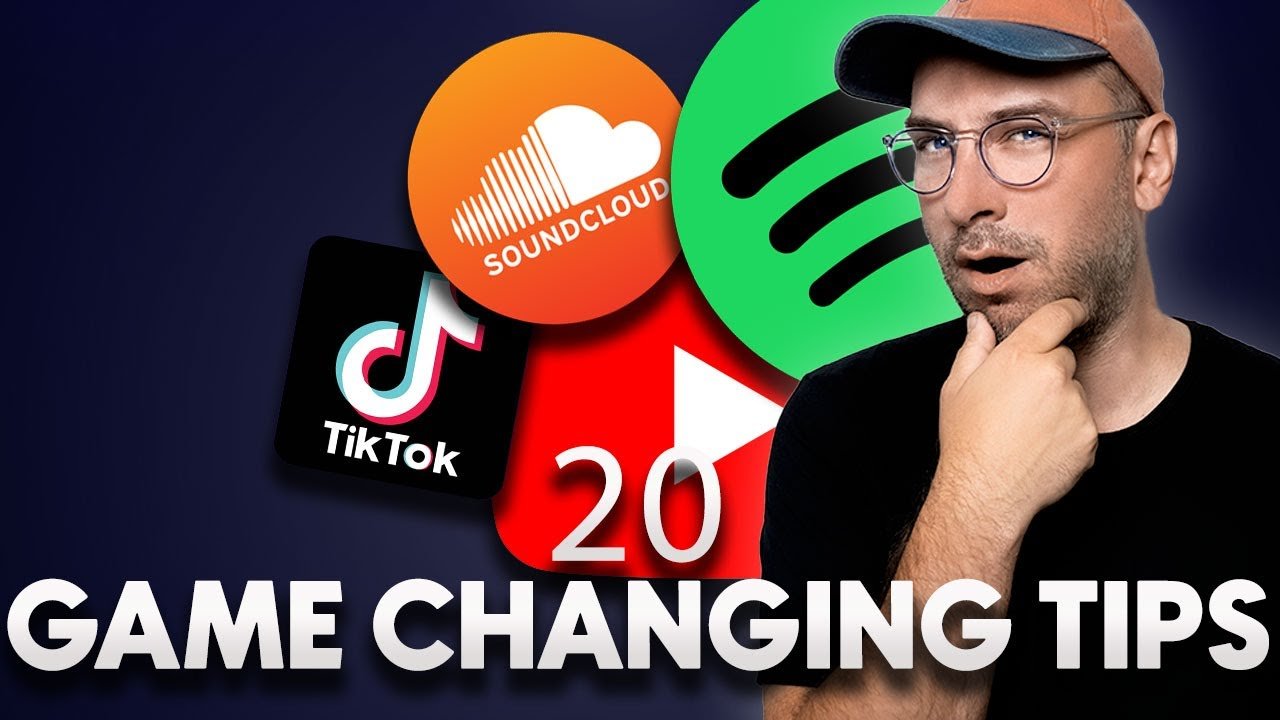How Major Labels REALLY Develop Musicians // WHAT I LEARNED AT ATLANTIC RECORDS
September 16, 2024 | by

Lessons from Working with Major Labels: What DIY Musicians Can Learn
So I grew up one of those kids raised on punk who thought major labels were the most evil thing this side of Oxycontin manufacturers. I spent my teens and twenties scoffing at the stupidity of the majors and all their foul-ups as they went from their highest profits to being an industry that had lost nearly all its value. I was mad at these labels for being such fat cats they couldn’t see the world under them was changing and how it had consequences on down to the cool indie records I worked on as their budgets got obliterated.
But then all of a sudden I was given an offer that was hard to refuse. Warner Music Group, one of the three major labels that exist today, offered to PAY ME to make podcasts to go in and show the DNA of the label and how they actually nurture artists with no editorial oversight and unprecedented access to the artists, staff, producers, and managers to tell unpolished real stories of how they got to one of the biggest labels on Earth and how they make the music that has such a huge effect on the masses.
So in this episode, I am going to tell you what I learned there and the lessons DIY musicians can take away and apply to their career. Hi, I’m Jesse Cannon, a music marketing nerd who’s teaching musicians how to grow their fanbase from zero to 10,000 fans, and this is Musformation.
My Journey into Podcasting
So if you didn’t know this, in addition to working on music, I got a real passion for podcasts and started making them a part of my life around 2006 and producing them in 2010 long before they became popular. Today, my company Musformation produces and markets over a dozen top podcasts, including two that have regularly appeared in the top 200 of all 1 million one hundred thousand podcasts.
But before I got there, in 2017, I was asked by Warner Music Group to make some podcasts for Atlantic & Electra with the ambitious goal of making some of the realest looks inside the process of making records the world has ever seen, and giving listeners what they enjoy about podcasts – a more realistic view of what is happening compared to the fluffy documentaries you often see in the mainstream.
So despite the fact that my young punk self would want to kick my older self’s ass, this was an offer I couldn’t turn down. While I’m a busy guy, I have been on a mission since all the way back in 2009 to put out the realest information in the music business since I truly believe that if DIY musicians knew what many of the overly funded groups in the mainstream knew, we’d get better music and art. If that’s my mission, then how could I say no to them paying me to do this?
Artistic Freedom
All my life, all I would hear is that the major labels shaped artists and turned them into these commercially viable products. I watched tons of movies where they told the artists to get a new haircut or get naked in their video or else they’d ruin their careers and drop them. Well, in the 17 years before I got to Atlantic, I had already worked with some of the biggest artists in the world. I had gotten a hint that was all bullshit, and while it occasionally happened, it really wasn’t an accurate portrayal of the music business of this century.
At Atlantic, I saw a trust in artists that they are the visionaries and that the label can help them consider their decisions more and put them around the best producers, directors, songwriters, etc., to nurture those decisions. The artists really were in charge as long as they didn’t break their budgets or timelines. Sure, the artists may have been asked to make some alternate versions, but truly this was not what I had always heard.
The artists were signed because they saw them as being exceptional, and some trust was placed there. Now granted, did I see some artists make terrible decisions and when their songs got fewer streams than some of my YouTube videos would they get dropped? Well… yeah! But I was continuously shocked how much the team at the label ate shit when it was clear they didn’t agree with a decision and still worked hard to push the artist’s vision.
In my interviews with head of A&R Pete Ganbarg, he repeatedly mentioned and gave examples that you can guide artists’ creative choices when it comes to their songs, but forcing your will on them creatively never leads to good songs since what makes good songs is making what you’re passionate about, not what’s trendy or forced on you. Which was nice to hear since the year before I had written a whole book on that and I kinda worried about that when I got into these walls and took a look, that I may be wrong. But sure enough, that book was proven even more right and just so you know, it’s available wherever fine books are sold. CHA CHING.
Nurturing Artists
Let’s talk about that thought and direction some more. The thing I thought was really interesting is once an artist got to the label instead of it being “write a god damn song that makes the TikTok go whirrr” it was much more “hey here are some talented producers, songwriters, and other artists we think you’d work well with, go see what you create.” Imprints of the label like Neon Gold would hold writing retreats, and in my documentary on Matt Maeson on Inside The Album, you hear how these collaborations taught him to be a better songwriter and helped birth one of his bigger hits.
The label trusted that if you put talented people together, they create great things and also have conversations that will teach the artists what artistry at this level is about. The fact is – many of the lessons of how to grow in music are often best delivered from colleagues and collaborators rather than some suit who is more of an authority figure. Plus, with your artists and creators working together, they know the artists often learn the tools from each other of how to create amazing things from working with those who are good at it. It’s win-win all around.
Brian Eno called this Scenius, where what would be largely determinative of your creative output would be the people you surrounded yourself with. And as a common trotted out saying goes, you are often as wealthy as the 5 friends you spend the time with. It’s also true that being around really genius people gives you thoughts that make you rise to a level, and I often tell musicians who are striving to get to higher places of creativity to get closer with everyone they know who is great and put yourself in closer proximity to them more often.
When you have the opportunity to level up and be around someone that is truly creative, make sure you place priority more than your dipshit friends who are playing video games all day. The fact is collaborations and co-writing is mentorship; it’s where you learn how to write and sing better, and the more people you work with, the more you learn. When I am constantly telling you on this channel to do more collaborations and work with other people, this is exactly where it comes from. I watched how much it made artists grow to find how they want to express themselves. Instead of it being they became more of a homogeneous mold, they’d find how to express their own unique vision better. It really was a sight to behold.
Also, if this video is giving you value, please hit like and subscribe if you want to get notified as I post videos on how to go from zero to ten thousand fans. I really suggest you do that.
Marketing and A&R Are Very Separate
One of the shocking things I saw that I had missed is in my younger days the A&R had so much of a say in what happened with promoting the record, but at Atlantic, the A&R was in charge of helping shape the record and songs with notes on songs and guiding the producer and mixer choices. But PMs, aka product managers, handled the marketing and planning around promoting the album after it was mastered. This to me is genius since what you’d often hear is how rare it was that A&R would be good at marketing, and developing songs. And this is a big flaw of so many of these people at indie labels would fail is because one person would be doing this, or maybe two, and it would be spread too thin.
It’s so uncommon for someone to be good at these two different mindsets, so having separate experts handle it all made all the sense in the world since the genius that has the marketing mind and creative mind is so rare.
The Major Label Is Not The Genius Guiding The Ship
A trend I started to see as major label budgets died down as the record biz really fell out in 2010 is that the managers became who was steering the ship even more. The fact was once major labels didn’t have 4 marketing people working one artist anymore and instead one marketing person began working 4 different artists, it became that management had to do more of the heavy lifting. That was what I saw over and over again at Atlantic. The management along with the artists were making plans and proposals hoping for the labels to come on board, and that’s not to say PMs didn’t have great ideas, but the myth that the label has commissioned a thorough roll-out and the manager approves that is about as real as the guy in your Instagram DMs who is asking you for $100 to give you 10,000 followers. Each year, managers seem to contribute more of the vision as the labels are spread thin with other duties. I don’t think this trend is going anywhere either.
This Isn’t Your First Rodeo
A very weird fact I see rarely discussed is that so many of the artists I met were on their second major label deal. Perhaps they were previously in a development deal or put out some songs on a major record label. So many people I know get crushed when things don’t work out for them, that are much more minor than getting dropped at a major label. But one of the things I have believed for over a decade and was reinforced at Atlantic for me is the artists who succeed in this business get used to failure and keep persisting. As I have said in a previous video, the artists who get paralyzed and depressed with each disappointment go nowhere. This is a business of learning how to build resistance. The road to success in this business is constant gains and setbacks.
There wasn’t one way of doing things either. For example, whether it was rock or pop acts, for most of them would go through a rigorous demo stage where A&R would give notes along before they went into the studio with producers. And the producer would give notes or outside songwriters would collaborate and try to make a song as emotional as possible. But that wasn’t always the case – take Low Country Sound, an imprint of WMG. Artists like Brett Cobb or Shooter Jennings worked with producer Dave Cobb, who’s one of the biggest in country music. He doesn’t believe in pre-production and told me on both podcasts I did with him about how not into the practice he is. They instead did what was right for the artist and trusted their creative vision would get what’s needed and become what comes across best.
But really what I saw over and over again was the label had access to a lot of great talent and knew who to call for what an artist needed. The fact is knowing who to call in when an artist needs a left-field idea, whether it’s for marketing or songs, can go a long way in making an artist go further.
So what does this mean for DIY artists? As I always tell you, becoming well-researched, knowing every producer who is starting to do great work that you could potentially work with, and knowing what the marketing opportunities are by keeping your ear to the ground is a lot of the game. That’s one of the main advantages of a major label. And while without a team, you can’t often get the objectivity and experience the major label has, that’s exactly what they offer for the crazy huge cut they take of your music sales. As they say, you get what you pay for, but guaranteed many artists feel that pay isn’t worth it, which is why they run from this system as fast as they can. But truly developing a community of collaborators and ears who are wise and give you good feedback is one of the main benefits of a major label.
While anyone claiming you can easily equal a major label infrastructure is a fucking liar who doesn’t get the game, I think many of the philosophies are one of the biggest assets of a major label. Them knowing how to employ that, keeping out of the artist’s way, and nurturing them are part of what make these artists great.
Well, if this video was enjoyable for you, I really hope you’ll like, subscribe, and get notified so we can keep having this fun together. If you have questions or want to flame me and call me a major label shill, the comments are below dawg. As well, if you’re not familiar with this channel, we discuss how to grow your fanbase from zero to ten thousand fans as well as how to navigate Spotify so your songs blow up. If you want to learn more about that, there’s two playlists on the screen right now. Also, thanks to Tom Mullen and Chris Lantinen who I worked on all these podcasts with and helped make them so great. I am so proud of them.
RELATED POSTS
View all


